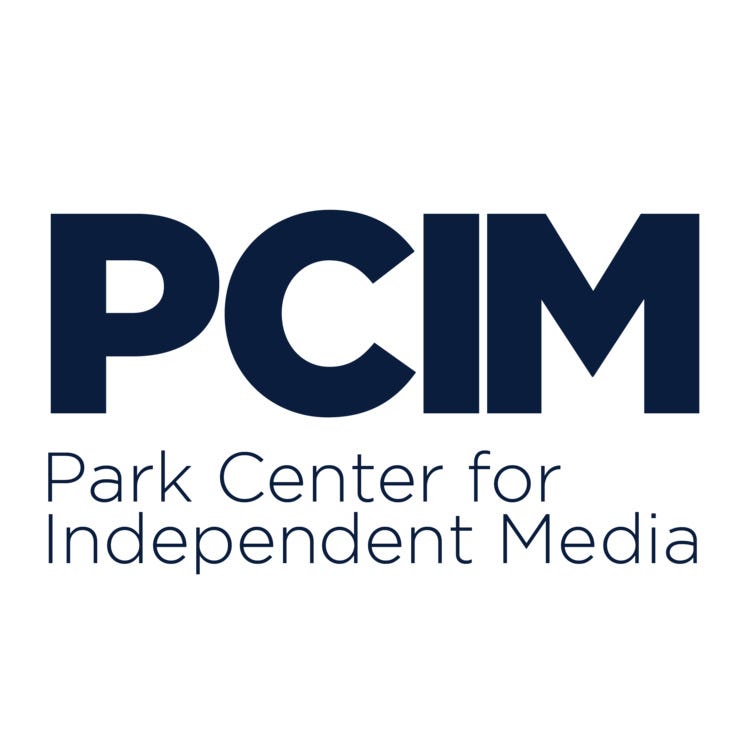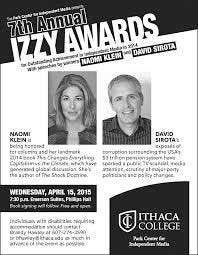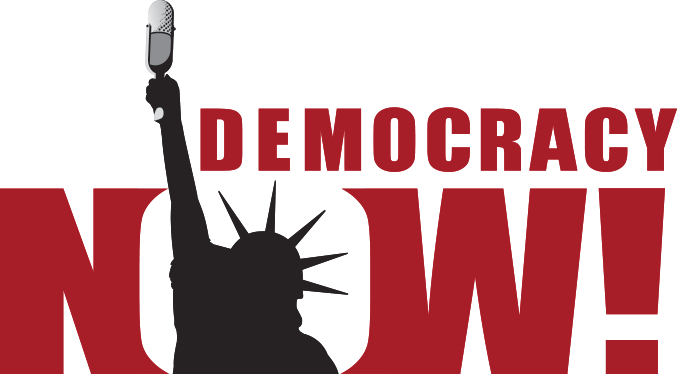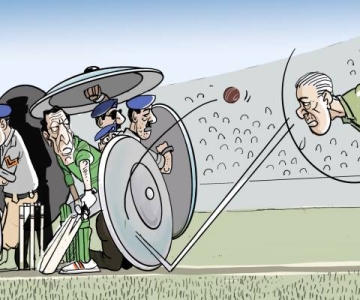Transcript of my interview by @brontecook1 for WICB News about the Park Centre for Independent Media, and why it’s so important for students to get involved in independent media. (The interview can be heard on Sound Cloud– starts at 23:00).
Bronte Crook (BC): And do you want to tell us what the Park Centre for Independent Media is?
Raza Rumi (RR): Park Centre for the Independent Media is a unique centre; I think one of its only kind in the United States that aims to connect students and the faculty with the larger independent media in the country and abroad as well. And by forging such connections, and making students aware of the independent media, it also gives an additional…academic and practice-[based] options for many students of journalism, of emerging media, and other departments at the Park School, whereby, they can choose an option when they graduate… But aside from that, it is also important to bring those debates into the College that are taking place in the real world, outside the corporate and mainstream media, which often works under the overall hegemony of special interests and corporate interests, and often does not inform the public as [the] media should be doing.

BC: So this is your first year as the director of the PCIM, do you want to tell us a little bit about your career as a journalist?
RR: It’s my first month, I’ve just completed that, and it has been a great and exciting first month of any job that I’ve done because: (a) there is a great legacy by Jeff Cohen, my predecessor, who set [up] the PCIM, but also this job allows me to expand the activities of PCIM. I also have a lot of support from the Park School, from other colleagues in the faculty within the college. It kind of fits in my career as well- the question that you asked- because I have been a journalist for nearly 14–15 years now.
‘Take the case of climate change, of fracking, of guns, how many stories does the American population find in the mainstream about these vital, critical issues’
I started off with a weekly magazine in my home country, Pakistan. I was a feature writer and then I gradually became its features editor, and then its news editor, and then I left that magazine as its editor. Then I was working for a national newspaper — I’m still affiliated with them. I was a broadcaster on Pakistani TV as well, I used to host a current affairs show every night. Other than that I’ve also been an ancient blogger; blogging was really popular in the early 2000s, so I set up my blog. I’ve traversed in these different fields, and I have lots of experience in public policy; working for and managing think-tanks. PCIM brings the two streams together because one of the mandates of PCIM is also to produce research and information for the students, but also for the larger world. It is both an intra-college vision, and also, an engagement with the outside world. It’s great fun, wish me luck!

BC: Good luck. Do you want to talk a little bit about why you believe independent media is so important in today’s day and age especially for students to connect with independent media?
RR: If we think that the job of journalists and different media instruments is to inform the public and uphold public interest, then unfortunately a lot of mainstream media — not just in the US, but actually everywhere now — does not do full justice to that essential task of journalism. More and more data across the globe shows that media is being controlled by the powerful and the super rich and they are aggregating and buying out smaller outlets, and turning into little oligarchies. The US is no different, I mean, where just a handful — less than 10 companies — control more than 80% of media produced in the mainstream. Which means that often what is reported or broadcast is in line with the larger corporate interest of the owners, and of the shareholders… Many public issues of vital importance require complete independence and speaking truth to power, and challenging some of those structures.
Take the case of climate change, of fracking, of guns, how many stories does the American population, and the students, find in the mainstream about these vital, critical issues that face us all here. Very few unfortunately, and that is where independent media is doing a great job. It is not only investigating very important stories, it is also bringing out commentaries, and shaping public opinion. The internet and the digital spaces have really helped in shaping that alternative discourse.
That’s why the students need to know more about it, they need to engage with it, read more independent media articles and reports, and watch more videos, which are non-mainstream to know that how many journalists are pushing the boundaries by reporting on issues they would not be able to in other parts of the media industry.

BC: Absolutely, I’m a big fan of Democracy Now. That’s my favorite. I just love that they go in depth with their interviews that mainstream media does not always have the time to focus on as much.
RR: Exactly. You mentioned Democracy Now. It has been consistently reporting on what has been happening in Yemen…a small, poor Arab country, which is being bombed by a rich neighbor, Saudi Arabia. Millions of children there are starving, so many civilians, thousands of kids have died in that war, but we don’t read about it. We don’t know about it because the US supplies arms to Saudi Arabia to go and bomb Yemen and therefore any public opinion that will go against the US’s engagement with Saudi Arabia will not be good for the…corporate interests. Democracy Now does that function on a daily basis, if not a regular basis, exposes what is happening in Yemen and wants the American public to know how their taxes are being misdirected towards this atrocity. That is what journalists need to be unearthing.
BC: Absolutely. You’ve been in this position for a month now, and you thought it’s pretty hectic. Do you want to talk about what you’re planning to do this year and any changes you’re planning to implement in the program?
RR: Well, we are going to build on what exists so there’s a great legacy of Izzy Awards where remarkable journalists are honored every year and that will continue; the internship program for the students is very vital. We would encourage students to come engage with PCIM and find a summer internship. But more importantly, what we are trying to do is also put a state of independent media report next year. We are redoing PCIM website. We are also going to create a space on our website where can commission some really bold stories by the students, by outside journalists, and keep the engagement increasing. Hopefully next year we are also going to organize a Symposium which bring journalists, academics, media critics together, and will be open to students where I will really hope and try that more and more students become part of those conversations.
BC: Looking forward to that. That sounds awesome! I think that’s all the questions I have. Is there anything else you’d like to add about the program or yourself?
RR: About the program, I think that Ithaca College [and PCIM have] this unique position where it is possible to study the independent media, but …also in connecting students with independent media producers across America and even outside America. I think that’s a great point to begin with. What my real request and effort in the months to come will be how to make this Centre engage with other departments, with other schools in the college because there are issues which are overlapping. When you talk about climate change, you’re talking of climate science. When you’re talking about key issues of the day, you’re also talking about politics… you’re talking about sociology and anthropology, so how do we bring all these threads together and create a well-functioning centre that will leave an impact on the society?
BC: Awesome! Thank you so much for coming today.
December 3, 2018: Independent Media Are Vital in a World Where Oligarchies Control Information



